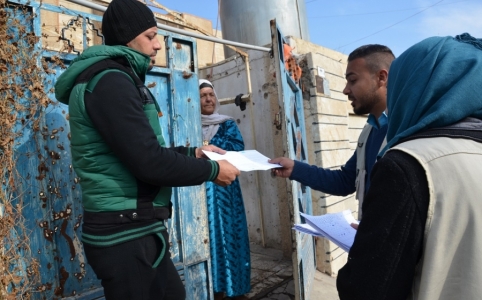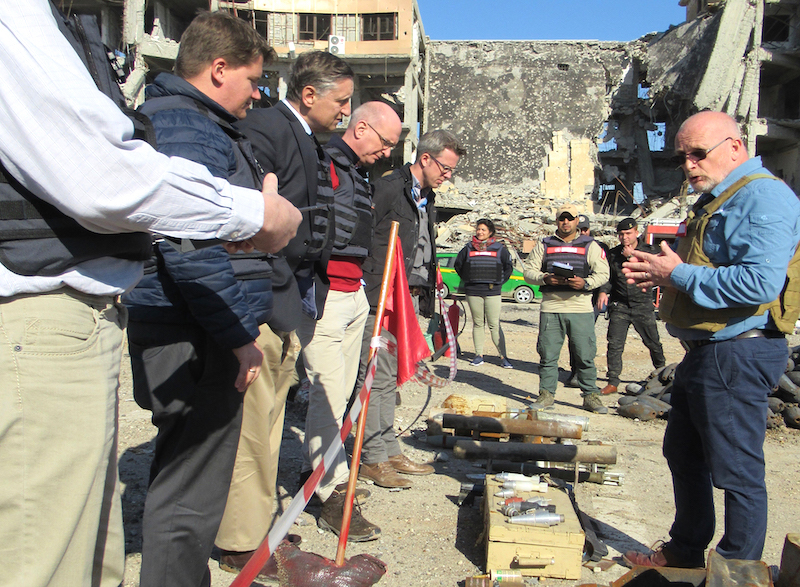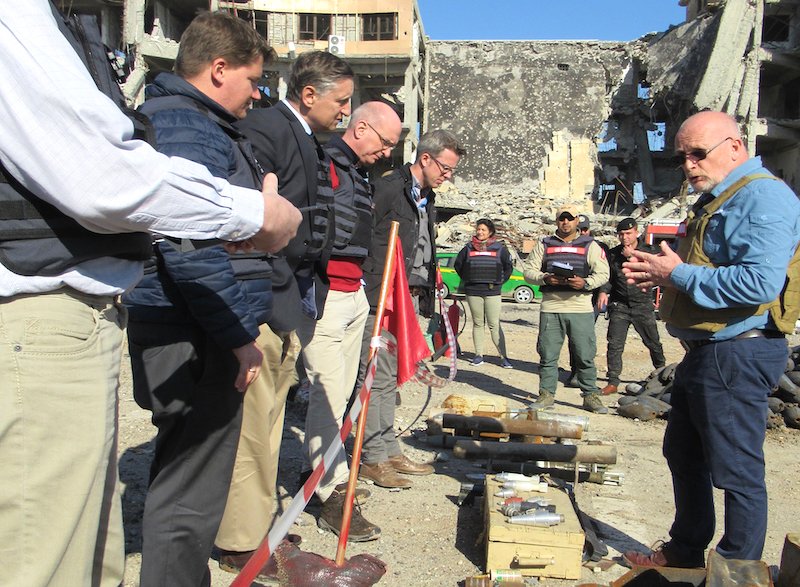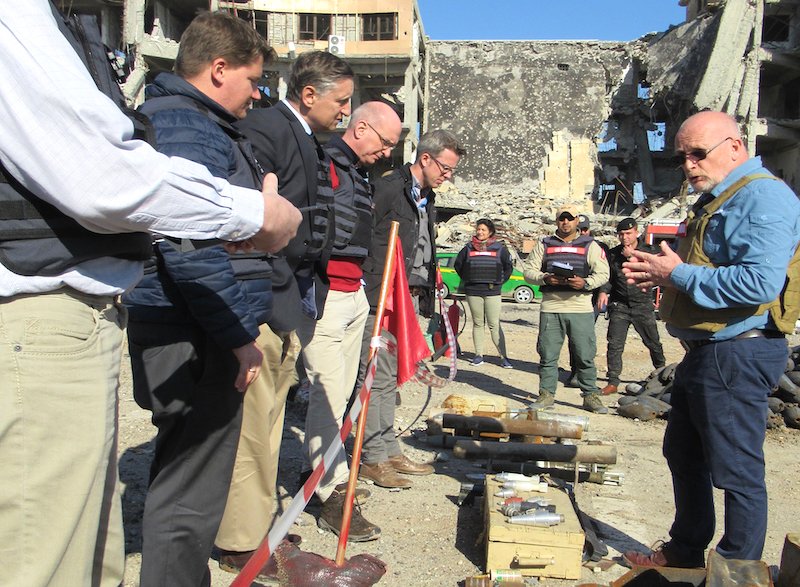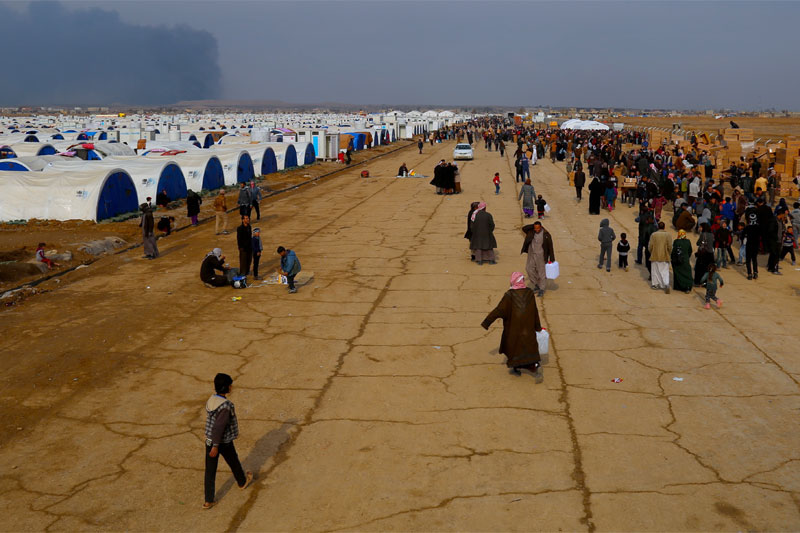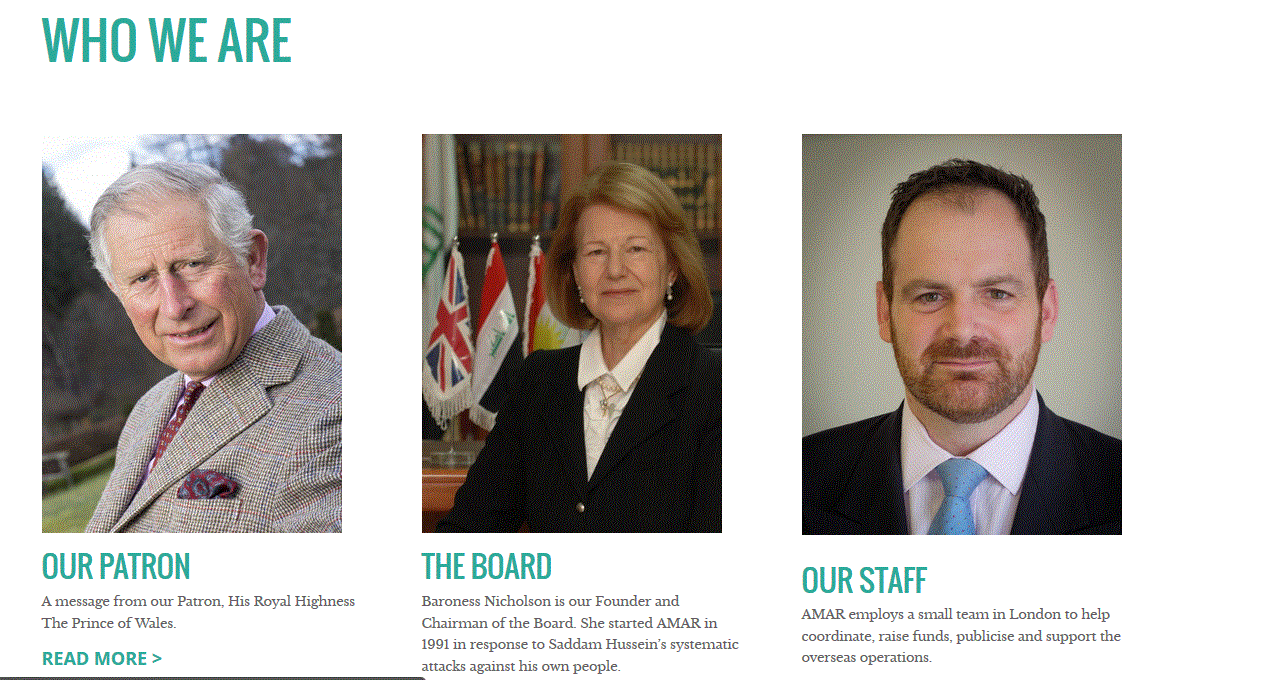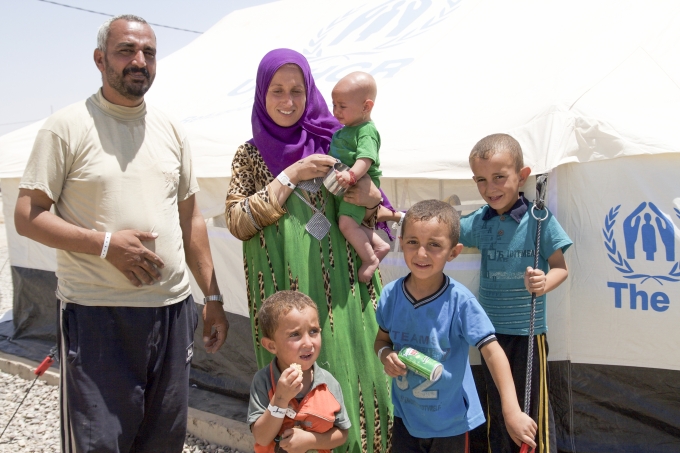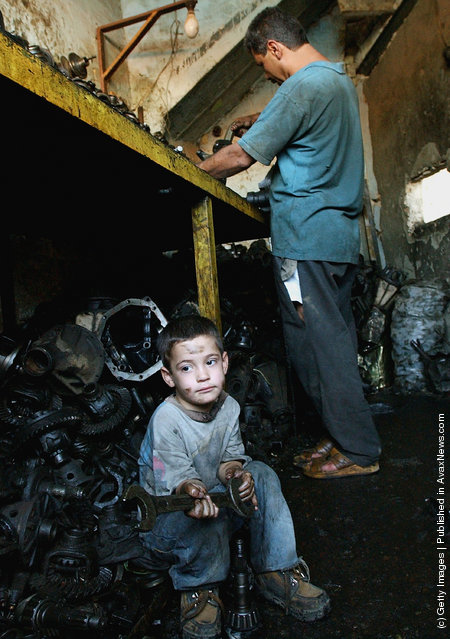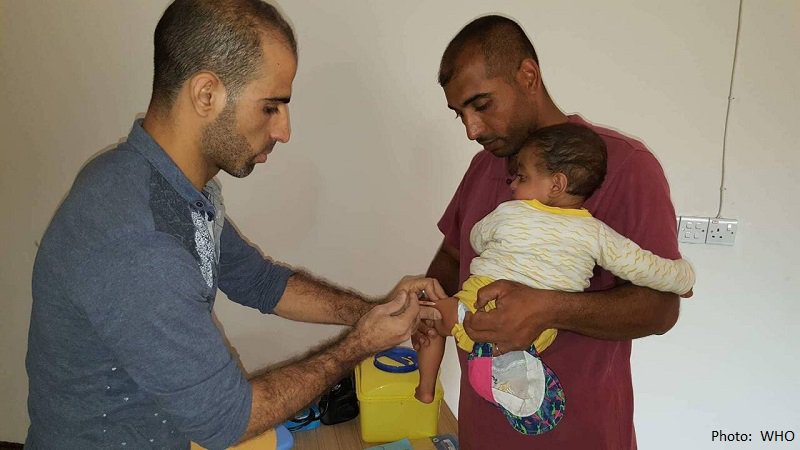The United Nations World Food Programme (WFP) has welcomed a contribution of €4.4 million (US$5.2 million) from the Government of Germany, which will provide cash-based assistance to almost a quarter of a million Iraqis for one month.
Dr. Cyrill Nunn (pictured), Germany’s Ambassador to Iraq, said:
“The German Government greatly appreciates its strong and effective partnership with WFP in Iraq.
“WFP plays a critical role in providing life-saving assistance to the most vulnerable people in this country. With this additional contribution to WFP’s Emergency Operation, we reconfirm our commitment to those who are in desperate situations – they will not be forgotten.”
This contribution will allow WFP to increase the scale and reach of cash-based transfers through WFP’s food assistance management system, known as SCOPE. This allows vulnerable Iraqis to buy nutritious foods of their choice from local shops.
Every month, families are notified by text message that their electronic credit allocation of around €15 euros (US$17) per family member has been reloaded. Using a WFP SCOPE card, they can withdraw cash from a local money transfer agency or pay for food in designated stores.
Sally Haydock, WFP Representative and Country Director in Iraq, said:
“We’re grateful to the German Government for its contribution to assist Iraqis still affected by conflict.
“By giving cash assistance to families, we are giving them a broader choice in what they buy while helping strengthen the local food market.”
Since 2014, Germany has contributed €104 million (US$122 million) to WFP’s operations in Iraq. These funds have enabled WFP to provide nutritious food to the most vulnerable Iraqis and Syrian refugees every month.
(Source: WFP)

